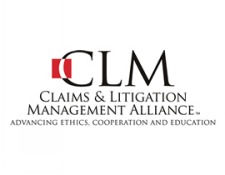Animal Bite Lawyers – Animal Attacks
Animal-attack claims most commonly involve dog bites, but there are many other types of domesticated animals. These include ferrets, cats, and even birds, which can also bite humans. Even non-domesticated animals, such as large cats ordinarily found in the wild, but sometimes owned as pets, have been known to attack children and adults. Claims are also made against horse and cat owners under Connecticut law. The Jackson O’Keefe, LLP, experienced lawyers in dog bite and personal injury laws are an excellent source for accurate advice and information in animal attack cases. To determine whether there is a valid claim, the type of animal, the animal’s history, and the circumstances of the incident may need to be addressed.
Proving Owners’ Liability in Animal Attack Cases
Although the rules differ by type of animal, generally to succeed in most animal attack cases, the injured person must prove that the animal that caused the injury was owned and kept by the defendant. Under current law, as to certain types of animals when it is proven that an owner was somehow negligent, such as by not properly restraining or containing the animal, the injured person may often recover damages without proving the animal’s viciousness.
Injuries Caused by Dogs
There is both potential common law and statutory liability for injuries caused by dogs. Because it is generally easier to establish liability under statute, we focus on that here.
Connecticut’s so-called Dog Bite Statute sets forth three requirements:
- The plaintiff was damaged or injured by a dog (this is not limited to “bite” injuries)
- The plaintiff was not committing a trespass or other tort, or teasing, tormenting, or abusing the dog
- The defendant was the dog’s keeper or owner. If established and no defense applies, a defendant is “strictly” liable for damages caused by the dog
Animal Bites and Attacks
An owner of an animal may be found liable under any circumstances in which he or she had knowledge of the animal’s viciousness but failed to act in order to prevent injuries to others. Accordingly, if an animal exhibits vicious or uncontrollable behavior, the owner should take steps to shield the public from the animal. For example, if an individual owns a pit bull with a propensity to attack and bite without provocation, the owner should probably keep the dog indoors and, while outside, in a yard from which it cannot escape. If he or she does not adhere to these common-sense guidelines and the animal attacks, the injured party may be able to recover his or her damages.
Those who keep animals generally considered wild, such as lions, bears, and monkeys, are typically liable for injuries caused by such animals regardless of whether the particular animal is known to be dangerous. Because wild animals are generally presumed to have a natural tendency to revert to their wild mannerisms no matter how well trained or domesticated, owners of such animals are often said to be “strictly liable” for any injuries caused by their wild animals. However, strict liability may not apply if the animal injures someone while it is confined or restrained on its owner’s property, but this is a factually dependent argument that will not apply in every case.
Conclusion
Jackson O’Keefe, LLP handles Connecticut dog bites and Connecticut animal attack matters throughout the State of Connecticut, including clients in Farmington, Wethersfield, Rocky Hill, Cromwell, Bloomfield, Moodus, East Haddam, Southington and Plantsville. Contact us now to discuss your case. There is no fee for initial consultations regarding personal injury claims.






